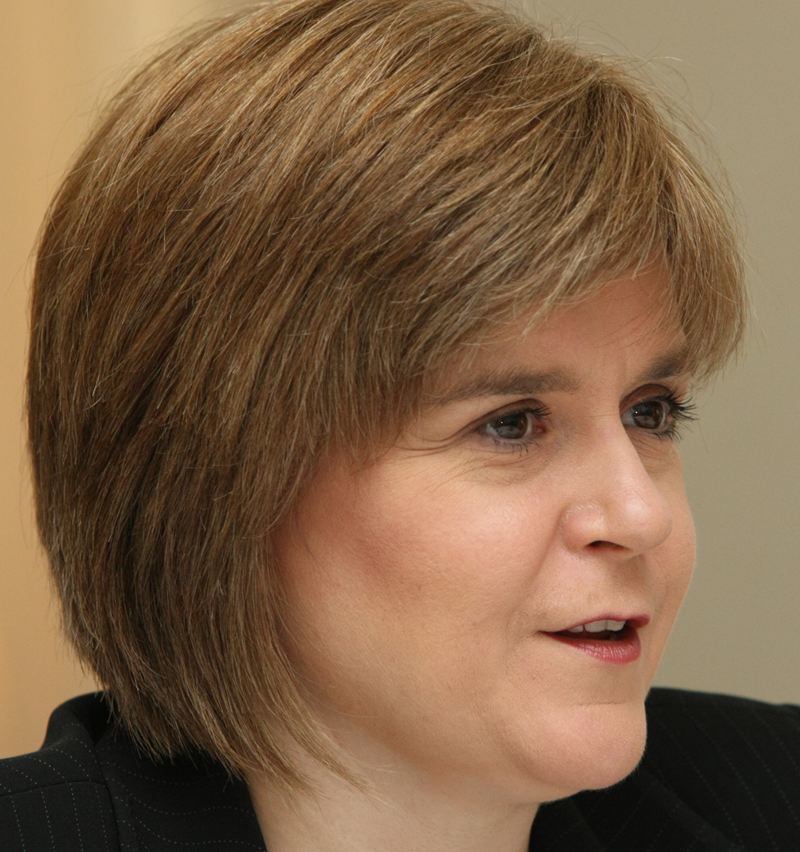Alcoholic drinks that have high levels of caffeine, like Buckfast, could be banned under proposals put forward by Labour to tackle Scotland’s love affair with booze.
The Scottish Government wants to bring in a new minimum alcohol level, but Labour is opposed to this and set up its own alcohol commission to make alternative recommendations.
In its interim report the commission recommended new laws to limit the amount of caffeine in drinks to 150 milligrams per litre of alcohol.
This would effectively ban drinks like Buckfast, which contains 350mg per litre.
The commission also recommended more emphasis on enforcement of existing legislation, particularly in testing for underage or agent purchases, expanding arrest referral and fine diversion schemes to help offenders address their behaviour before committing more serious crimes and expanding drug treatment and testing orders to tackle alcohol as an alternative to custodial sentences.
However, the plan was heavily criticised by Dr Brian Keighley, chairman of the British Medical Association in Scotland, who said, “This report makes no recommendations that will address the growing levels of alcohol misuse in Scotland.
“Instead it focuses on treating the harms caused by alcohol, which… is rather like closing the stable door once the horse has bolted.”‘Fails to acknowledge changes’Scottish health secretary Nicola Sturgeon said, “This report fails to acknowledge the substantial changes that have already been made to Scotland’s licensing laws and the efforts being made by licensing boards and the police to use the new powers to their full extent.
“It’s also disappointing that it failed to address the issue of minimum pricing instead, it looks at Buckfast, which only represents 0.5% of Scottish alcohol sales.”
She added, “We always said we would welcome any proposals from anyone looking to help tackle Scotland’s unhealthy relationship with alcohol.
“That remains the case and we will be happy to consider any sensible, evidence-based amendments which are brought forward at stage two.”
Labour’s health spokeswoman Jackie Baillie welcomed the report, saying, “What we are getting today is only the interim report, but we will use it to inform our response to the legislation currently going through the Scottish Parliament and bring forward amendments.
“In particular, we will act on the report’s recommendations for strong action to limit the availability of alcoholic drinks with active ingredients by seeking to impose a legal limit on the level of caffeine in alcoholic drinks.”
Commission chairwoman Professor Sally Brown said, “While this is only an interim report, and there is a great deal of work still to be done, we are agreed on the need for action on a number of fronts including enforcement that curbs sales to children, reduction of harm caused to families by alcohol abuse and ways of dealing with alcohol addiction and associated violence.
“This implies legislation, regulation and support services to address the problems Scotland currently faces.”Cultural shift neededShe added, “However, our biggest and most important task is to change Scotland’s culture.
“This cannot be accomplished quickly, or with any single measure but everyone has a part to play.”
Tory health spokesman Murdo Fraser said, “This is a welcome contribution to the ongoing debate about how best we tackle levels of alcohol abuse in Scotland.
“However, by focusing so heavily on just one aspect of the problem namely caffeinated drinks such as Buckfast this report is in danger of being too narrow in its approach.”
He added, “The plans from the UK Government to ban sales of below-cost-price alcohol and to bring in increases in duty targeted on problem and high-strength drinks have already dramatically altered the parameters of the debate in Scotland.
“These plans mean that approaches such as the SNP’s indiscriminate blanket minimum pricing are now irrelevant and unnecessary, and the UK Government plans will need to be carefully considered by all parties seeking to contribute to the debate.”
Buckfast sales manager Jim Wilson said the 150mg band was “unjustifiable.”
He said, “Show us the calculations and the evidence for cutting from 375 to 150. Show us the calculation that caffeine above 150 is dangerous.
“How have they calculated this? When we have seen the calculations and the scientific evidence, then we will take it seriously.”
He added, “We have been selling our product for 80 years.
“Shona Robison, the public health minister, has made a statement in parliament that there is no evidence of harm, so why does the Labour Party say different?”
Mr Wilson said, “We are a responsible company and we don’t want our customers taking something that’s dangerous.”
Lib Dem health spokesman Ross Finnie said, “Changing Scotland’s drinking culture should be a priority for every MSP, regardless of party.
“Singling out a proposal to limit caffeine in alcohol won’t do this.”
Photo used under Creative Commons licence courtesy of Flickr user jakeybob.
